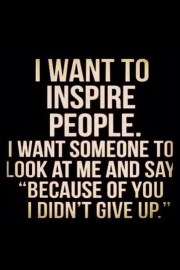
I always felt that people didn’t expect very much of me because I was disabled. I don’t think anyone would do this maliciously or even consciously, but my annoyance at these adapted expectations has shaped me into the person I am today. Most of the time, i.e. when I am not mooching around the house and binge watching the Bridge, I am extremely driven and not only want to succeed, but help others to succeed too.
I have been going to Moorfields eye hospital ever since I was little. One year (not that long ago), I had a new consultant looking at my eyes. Whilst looking, he asked me some generic questions about my life, and then dropped the question; “Can you use a computer?” You can imagine my surprise! Then I thought about it, if he was making assumptions based on the state of my eyes alone, I must be blinder than I gave myself credit for. This means I am not clumsy (take that, lamp post), but I still don’t see (ha-ha…get it?) why I wouldn’t be able to use a computer. Things like that happen often, people can make very quick assumptions about what I can and can’t see (and therefore what I can and can’t do) without asking. I know they have the best intentions but it can get quite frustrating. I hear ‘You won’t be able to see that’ quite a lot. Did they somehow manage to steal my eyes when I wasn’t looking? I feel that the expectations society sets for someone who is disabled are lower than for a non-disabled person. This can have really damaging impacts. It can mean that a disabled child may not get the same level of independence (which can in turn have impacts on ones’ confidence). Therefore, when a child gets older, they may start putting limitations on themselves, for example, ‘I can’t travel by myself’ or ‘I couldn’t possibly get a degree’. I know this is the reality for quite a few disabled people. If other parents, like mine, support disabled children to live independently, give them room to make mistakes and (most importantly) let them grow, their child is a lot more likely to be independent and achieve more.
My drive comes from my experiences and my parents. My parents always held me to the same standards as my ‘normal’ sister. This meant that I was striving to get good grades, striving to go to university and to get a good job. My experiences have made me want to try so much harder, so I can continue breaking stereotypes and help others do it too.
I am now going to be on a Christmas break. My first post in the New Year will be on the 2nd of January. Have an amazing Christmas and I will see you all in the New Year! 🙂
